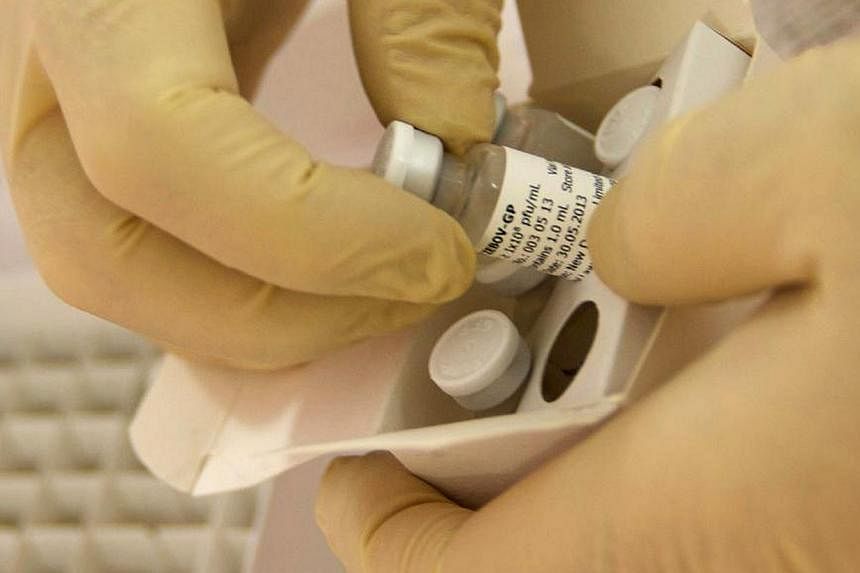GENEVA (AFP) - Canada will start sending more than 1,000 doses of an experimental Ebola vaccine to Switzerland this week as part of the global fight against the deadly virus, a Geneva hospital said on Sunday.
Trials of the vaccine on humans are expected to begin in Switzerland at the end of October or early next month, it said.
"The Canadian government has said it will begin sending the vaccine doses on Monday, so they should arrive in Geneva on Tuesday," said Agnes Reffet, spokeswoman for the Geneva University Hospital, HUG, where the vaccine will be stored.
Canada said in August it would give the Geneva-based World Health Organisation 800 vials - each believed to contain about two doses - of the VSV-EBOV vaccine developed at the National Microbiology Laboratory in Winnipeg.
The UN health agency has identified two experimental vaccines that have shown promising results when tested on monkeys: The Canadian VSV-EBOV, licensed by US firm NewLink Genetics, and one made by British company GlaxoSmithKline (GSK).
Clinical trials of the NewLink vaccine began in the United States last week. The Canadian government said the results are due in December.
"You cannot transport this kind of product any which way," Reffet said, when asked why it had taken so long for Canada to send the vials.
The vaccine must be stored at minus 80 degrees Celsius.
Canada said it would send the vials in three separate air shipments as a precaution in case of an accident or a temperature control failure.
The trials in Switzerland will be run by HUG, which has also been chosen by the Swiss government to care for Geneva-based employees of international aid organisations who might become infected with Ebola in the field.
There is no licensed treatment or vaccine against Ebola, which has killed more than 4,500 people in the outbreak centred in west Africa.
WHO said last month it hoped thousands of doses of the vaccines would be ready for use badly hit African countries by early next year, but GSK warned Friday that its vaccine, which has started some clinical trials, might not be ready for commercial use until late 2016.

